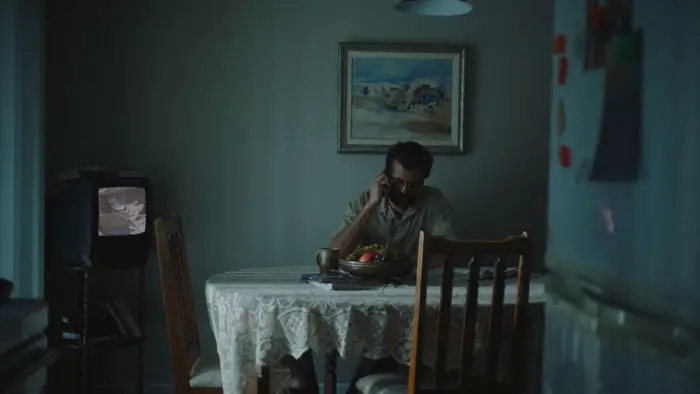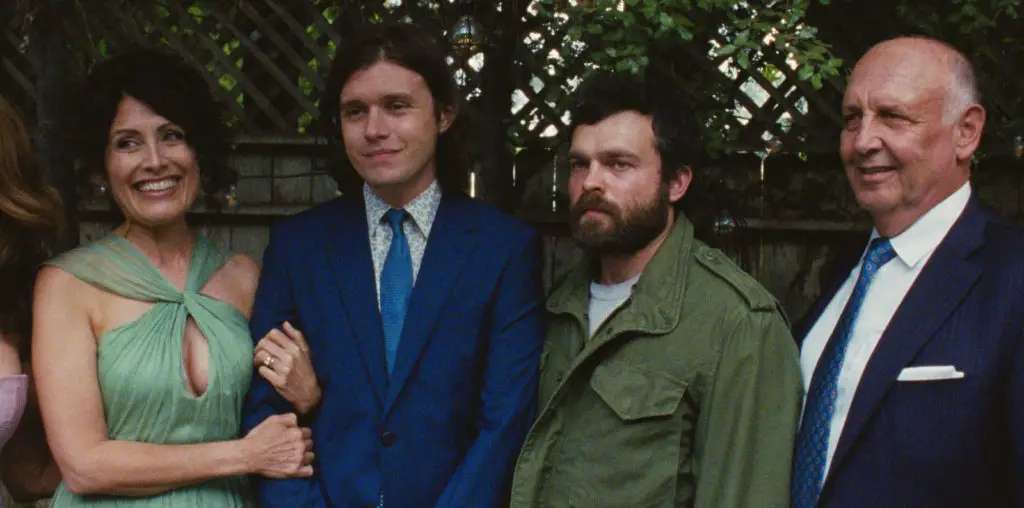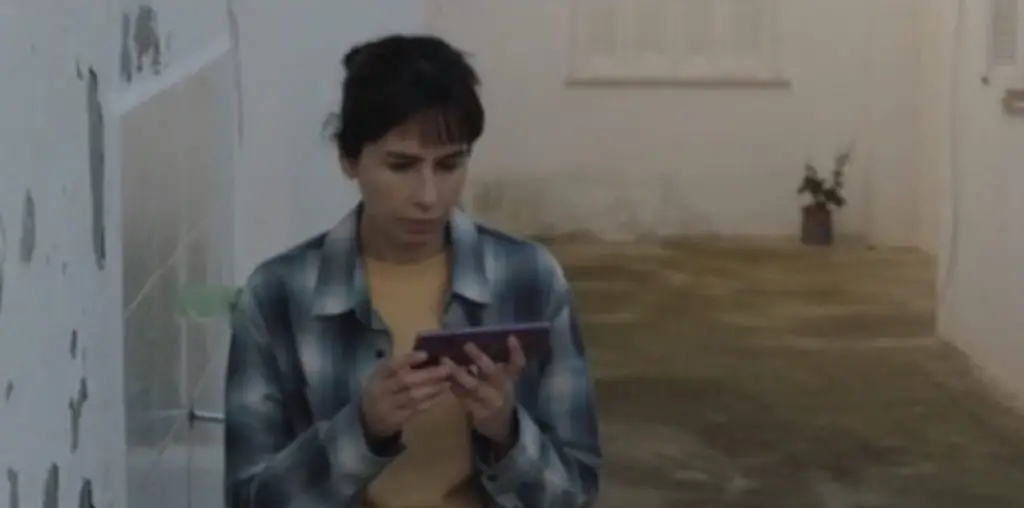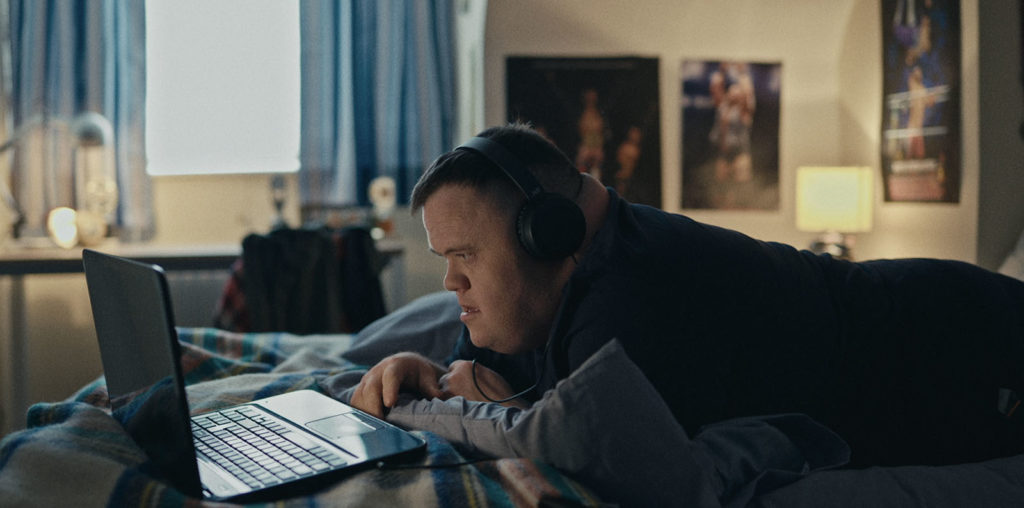
Director and writer Aziz Zoromba’s dramatic short film Simo is a revealing, simple, but compelling story on immigrant immersion in Western society. As a Canadian-Egyptian director, Zoromba knows exactly what similar situations are like and presents his story truthfully. He introduces competing teenage brothers and their need for attention-grabbing masculinity while creating a worldly, edgy fear, destroying a typical modern life and Western existence in one mighty blow.
Simo (Basel El Rayes) and Emad (Seif El Rayes) are brothers who live with their father, Baba (Aladeen Tawfeek), sharing a basement bedroom where competition and jealousy have no bounds. Lifting weights, booming speakers, and warfare gaming are all in play for these growing Egyptian young men. Emad is called to do dishes with Baba and is anxious to return to his game. Feeling inferior, Simo highjacks Emad’s game and garners 200 views. A blown speaker behind Simo resembles a bomb since Emad dismantled it after blowing it out, blaring the bass.

“A blown speaker behind Simo resembles a bomb…”
Unknowingly, this image causes the family and others a life-threatening situation — it’s very metaphoric. When Emad catches Simo playing, he sends him crashing into his bed, but not without asking how many views he has. A bad dream of a house raid awakes Simo. However, it’s not a dream. Baba and Simo end up fetching Emad from a government building where the weight of life is felt all around them. The three bond in the car, putting the atrocious incident behind them and moving forward as a family. There’s nothing to discuss because it’s a situation beyond their control, one of target and profiling.
Simo subtly explores outlooks on masculinity and cultural identity, especially in regards to being an Egyptian Arab in Canada. Regardless of daily activities and typical teenage brothers fighting, growing, competing, and learning, there is an undertone of fear and not belonging. Creating a sense of place and identity, Baba is on the phone discussing money and an uncle no longer alive. He tries to control his hormone-raging sons while emphasizing their basic necessities and existence.
The cold, concrete, and white appearance of the snow and brick house with rap music as a voice of fear adds to the outcast and foreign feel. However, Simo breaks the fourth wall at the end, which can be justified as survival, upholding a suspension of disbelief.

"…a revealing, simple, but compelling story..."


